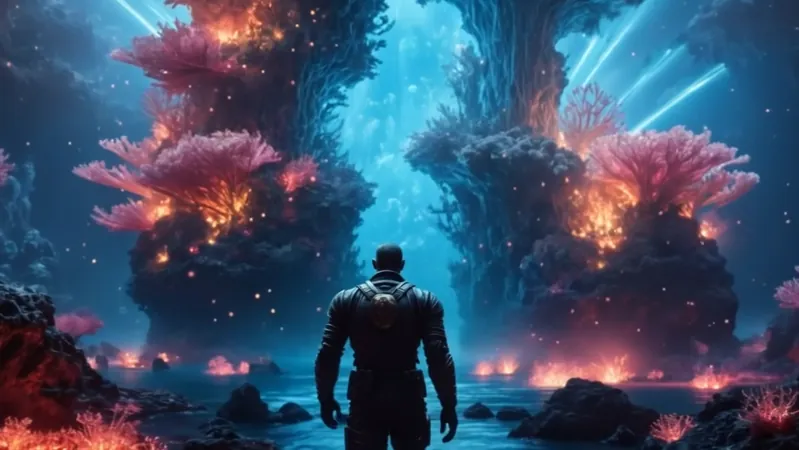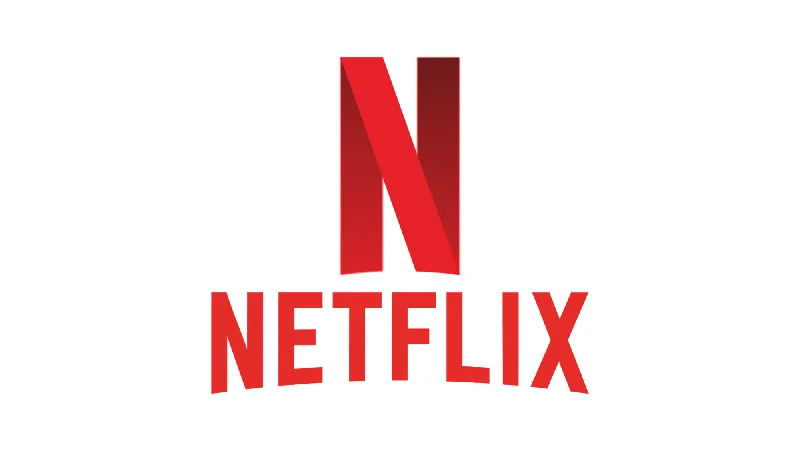
The Fallout from ARK's Controversial AI-Powered Trailer: Who's to Blame?
2025-03-25
Author: Emily
The ARK: Aquatica Trailer Incident
In the ever-evolving landscape of video games, mistakes can happen—though some blunders certainly stand out more than others. The recent trailer for ARK: Aquatica, a highly anticipated underwater DLC for the popular survival game ARK: Survival Evolved, has sent shockwaves through the gaming community. This brief, one-minute teaser showcases an assortment of generic, AI-generated visuals, complete with jarring quick cuts and a surreal quality that highlights the limitations of AI-generated art.
Fans of the franchise have expressed their outrage over the trailer, which features everything from bizarre animated squids that leap out of solid ground to swimming characters whose feet morph into fins. It’s understandably generated a backlash, with the trailer receiving a staggering 21,000 dislikes compared to a mere 1,600 likes on YouTube. One comment, which quickly rose to the top, bluntly states, “This is disgusting and you should be ashamed of yourselves.”
Developer's Response
As the situation unfolded, developers at Snail Games—the creators of Aquatica—attempted to shed light on the mishap, distancing themselves from the troubling marketing choice. Lead game designer Matt Kohl clarified that the ill-fated trailer was the work of the marketing department, which used AI to animate existing assets from the game, leaving the development team unaware of this decision. “There has been no AI use in the development of Aquatica,” he asserted, emphasizing the divide between marketing and development processes.
The Broader Implications
This moment is crucial, drawing attention to a growing trend in the gaming industry: the use of AI in promotional materials. While AI can streamline certain tasks, it often results in outputs that lack the human touch—leading to a disconnect between the actual creative work and its public representation. Players are often left to interpret these AI-generated images as a reflection of the developers’ commitment to their craft, fueling distrust and disappointment.
This incident raises significant questions about accountability in game development. Who ultimately bears the responsibility when marketing missteps like these occur? Should developers have to monitor the actions of the marketing team to safeguard their reputation? The implications extend beyond just one title, affecting the overall perceptions of projects that many developers pour years into creating.
Industry-Wide Challenges
Notably, Snail Games is not the only studio facing challenges in navigating the complexities of AI in marketing. As more companies embrace automated tools to assist in promotions, the risk of alienating their audience increases. The vital human elements of storytelling and artistry can get lost in translation when relying too heavily on technology.
Looking Forward
As anticipation for ARK: Aquatica builds up, the developers are searching for redemption. A gameplay trailer is on the horizon, promising to showcase the true essence of the game and make amends with the community. However, whether this will be enough to rebuild the trust that has been eroded by the AI trailer remains uncertain.
In a world where technological advancements promise to revolutionize the way we create and consume art, the ARK debacle serves as a cautionary tale. As studios chart their course through this new landscape, the balance between innovation and authenticity will be paramount in regaining the goodwill of the players they serve. Will Snail Games learn from this experience, or will we see more AI-driven marketing disasters in the future? The gaming community is watching closely, and their voices will undoubtedly shape the conversation moving forward.









 Brasil (PT)
Brasil (PT)
 Canada (EN)
Canada (EN)
 Chile (ES)
Chile (ES)
 Česko (CS)
Česko (CS)
 대한민국 (KO)
대한민국 (KO)
 España (ES)
España (ES)
 France (FR)
France (FR)
 Hong Kong (EN)
Hong Kong (EN)
 Italia (IT)
Italia (IT)
 日本 (JA)
日本 (JA)
 Magyarország (HU)
Magyarország (HU)
 Norge (NO)
Norge (NO)
 Polska (PL)
Polska (PL)
 Schweiz (DE)
Schweiz (DE)
 Singapore (EN)
Singapore (EN)
 Sverige (SV)
Sverige (SV)
 Suomi (FI)
Suomi (FI)
 Türkiye (TR)
Türkiye (TR)
 الإمارات العربية المتحدة (AR)
الإمارات العربية المتحدة (AR)